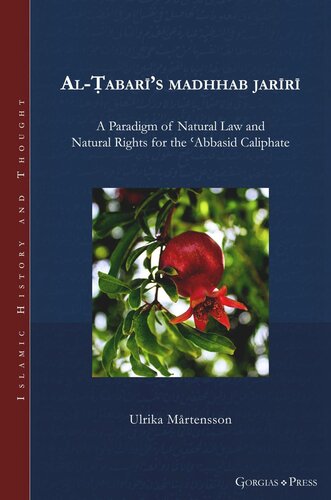

Most ebook files are in PDF format, so you can easily read them using various software such as Foxit Reader or directly on the Google Chrome browser.
Some ebook files are released by publishers in other formats such as .awz, .mobi, .epub, .fb2, etc. You may need to install specific software to read these formats on mobile/PC, such as Calibre.
Please read the tutorial at this link: https://ebookbell.com/faq
We offer FREE conversion to the popular formats you request; however, this may take some time. Therefore, right after payment, please email us, and we will try to provide the service as quickly as possible.
For some exceptional file formats or broken links (if any), please refrain from opening any disputes. Instead, email us first, and we will try to assist within a maximum of 6 hours.
EbookBell Team

0.0
0 reviewsThe book analyses the works of Muḥammad b. Jarīr al-Ṭabarī (224/839–310/923) as expressions of the theory of natural law and natural rights, and its corollary theories of politics and social contract, language and rhetoric, hermeneutics, metaphysics, ontology, epistemology, and ethics. Through this approach, the author argues that al-Ṭabarī’s scholarship constitutes not only sources of information about the rise and early development of Islam and Islamic polities and disciplines, but theoretically informed analysis of sources and scripture as well. As such, al-Ṭabarī’s works offer important contributions to current research into early Islamic history, law, administration, and the Qur’an. A preliminary effort is also made to historically trace al-Ṭabarī’s theoretical paradigms to a continuum of translation and commentary on Aristotle’s works. The starting point is the mid-500s CE in the Sassanid empire and the Arab polities within its domain, i.e., the Lakhmid kingdom and its administrative links with Hijaz, and the end point is the mid-300s H/900s CE in the Abbasid Caliphate. Alongside this theoretical legacy, the author plots both the Qur’an and al-Ṭabarī’s works, including his famous Qur’an commentary. Special attention is also devoted to relations between theory and practice, concerning ownership of lands, the land tax, redistribution and the common good, conditions for agriculture, and peasants’ rights.